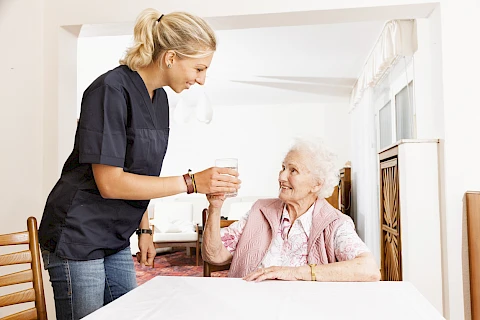
For many seniors, at-home care ensures they receive the right support to maintain their quality of life. Understanding when and how to get additional help can make a huge difference for seniors and their caregivers. Here are some signs to watch for, tips for assessing the needs of your senior loved one, and what to do when it's time to ask for help.
Signs Your Senior Loved One May Need Additional Home Care
Observing certain signs starts with whether your senior loved one needs more help. Look for mobility issues or frequent falls, which could signal the need for assistance with moving around safely. Memory loss or confusion can be red flags, especially if they forget essential tasks or get lost in familiar places. Depression or anxiety may show they are struggling emotionally and could benefit from additional support. Finally, difficulty performing personal care tasks like bathing, dressing, or handling household chores can indicate a need for home care services.
Questions to Consider When Assessing Home Care Needs
To make an informed decision about home care, consider the following questions:
- How often do they need assistance? Determine if the need is occasional or requires daily attention.
- What specific tasks do they need help with? Identifying whether they need help with personal care, medication management, or household chores can guide you in choosing the right services.
- Are there any medical conditions that require specialized care? Some conditions, like dementia or diabetes, may need specialized care that only trained professionals can provide.
- How are their social life and emotional well-being? Social isolation can lead to emotional problems. Assess if they are maintaining friendships and engaging in social activities.
Red Flags Indicating the Need for Professional Home Care
Certain warning signs can indicate that professional home care is necessary. If they are not bathing regularly or wearing clean clothes, it may be time for extra help. Unexplained weight loss could mean they are not eating properly or forgetting to eat. Increased isolation or withdrawal could signal underlying issues. Finally, cluttered or dirty homes or hazards like loose carpets can indicate that they are not managing well on their own.
Choosing the Right Home Care Provider
Selecting the right home care provider is crucial. Here are some steps to help you make the best choice:
- Researching and comparing providers: Look into different providers in your area and compare their services and reputation.
- Checking credentials and reviews: Ensure the provider is licensed and has positive reviews from other clients.
- Understanding the services offered: Make sure the provider provides the specific services your loved one needs.
- Evaluating the cost and payment options: Understand the costs involved and explore payment options like insurance to ensure affordable services.
Does Your Senior Loved One Need More Support?
Properly assessing home care needs and choosing the right provider can significantly enhance the quality of life for your senior loved one. Don't hesitate to take action if you notice any signs indicating they need more help.
If you live in Valparaiso, Portage, Chesterton, Westville, or Lake County, contact us today for a consultation. Senior Helpers Chesterton can help you take the right steps to ensure your loved one receives the care and support they need.